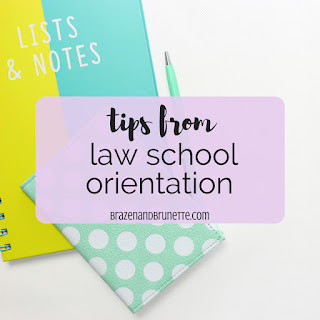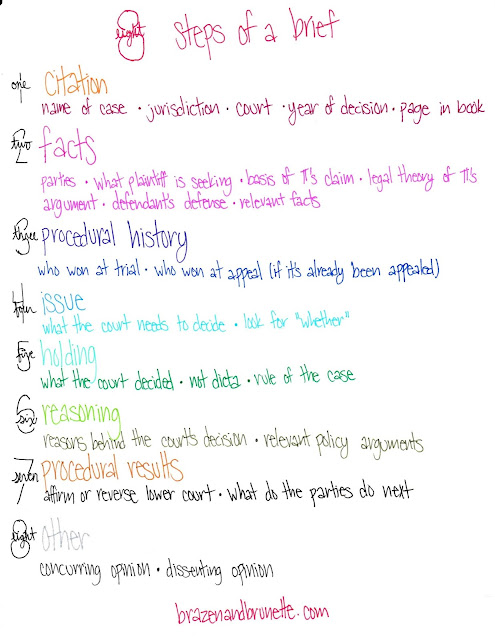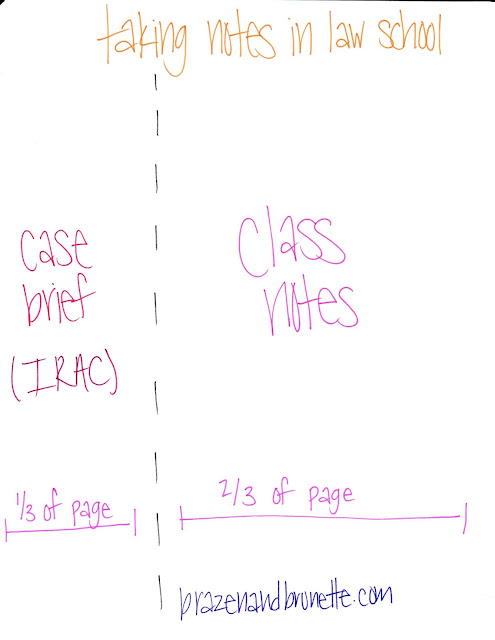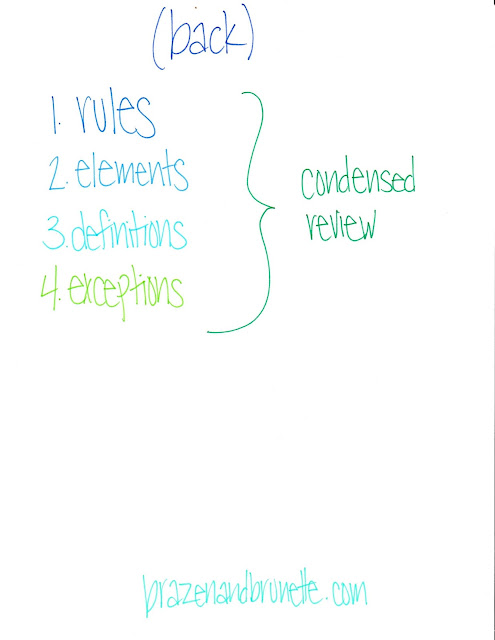To be honest, it was a little awkward when I'd meet a 1L and they'd ask what section I'm in so I'd have to explain that I'm actually a 2L transfer. But then they'd always ask me about my 1L year or for advice, and obviously I love giving advice about law school so I'd just blab their ears off. What's strange to think about is that as a blogger I don't know if I should be like yeah you should check out my blog! or if that's weird.
My favorite part was went I saw on the schedule that one of the events was titled A Day In The Life Of A Law Student and I could laugh because been there, done that, wrote a blog post about it. There was also a segment titled Thinking Like A Lawyer which just so happened to be my theme for my personal statement when I transferred. Seriously I couldn't have been more prepared for this week haha.
But that doesn't mean I didn't pay attention! Oh no, my friends. I decided to put my new colorful pen set that just came in to test and make colorful notes you y'all. I know some of this might be repeat or different from what you've just heard, but I figured the more informed you are, the better! Sorry that I don't have tumblr-esque writing lol.
I liked how this orientation really took the time to explain how to write a case brief. They went more in depth than your typical IRAC, but the professor went over it slowly with an example case. (PS if you're struggling to fill these out, here's a post with some help)
Another great thing that I took from round 2 was a suggestion on how to take notes. You've probably heard of the Cornell Method of note taking, but this professor customized that style for law school. One thing I want to work on this semester is hand writing the summaries of my chapters to hopefully help myself study more, so I'm planning on using this when I do.
What you do is on the front split your page into about 1/3 on one side and 2/3 on the other. For 1/3 you'll have the main parts of your brief, and then right beside it on the larger half you can take notes about that brief. That way you're not switching back and forth between the two. On the back you make a summary of that case so that you'll have all this information already together and ready for your outline.
What you do is on the front split your page into about 1/3 on one side and 2/3 on the other. For 1/3 you'll have the main parts of your brief, and then right beside it on the larger half you can take notes about that brief. That way you're not switching back and forth between the two. On the back you make a summary of that case so that you'll have all this information already together and ready for your outline.

























0 comments:
Post a Comment